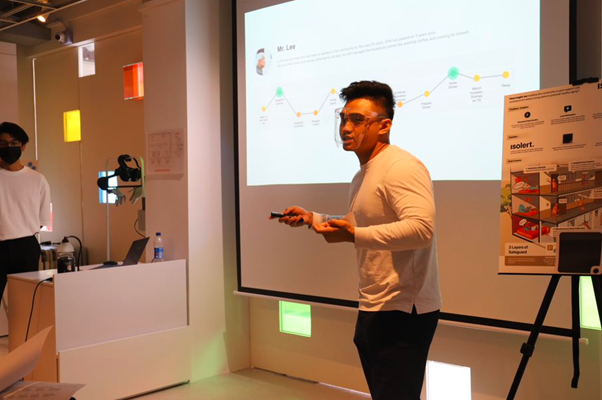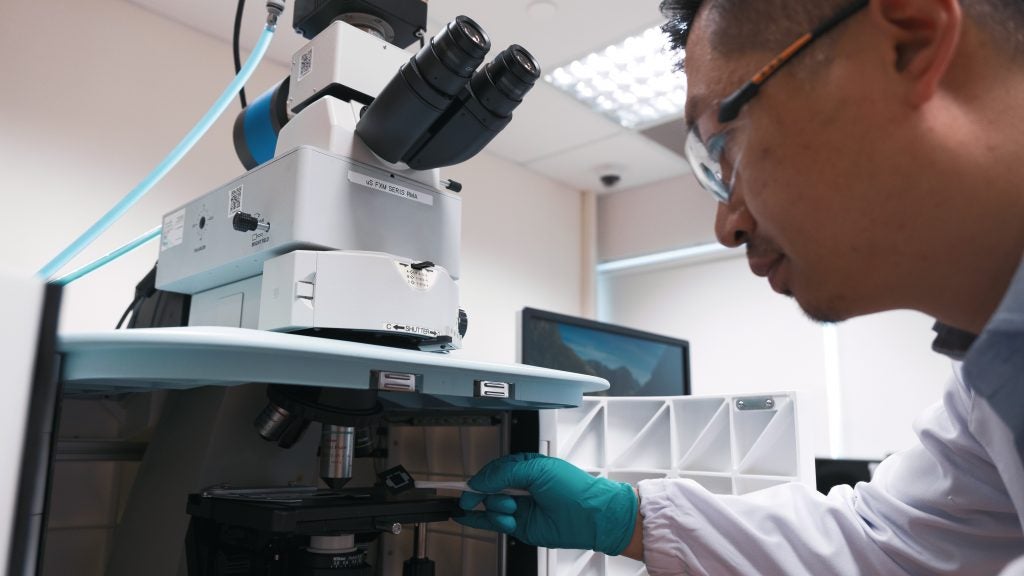An interdisciplinary group of students came together to co-design solutions enabled by empathetic technology that can enhance the lives of older Singaporeans.
Can empathetic technology be the answer to Singapore's ageing population? Senior Lecturer Dr. Bina Rai from the Department of Biomedical Engineering organised Co-Design week, an initiative that brought together a group of students, community partners and residents from Queenstown to address this question. Our students interacted with seniors to brainstorm and co-design strategies that can help the elderly live healthier and socially inclusive lives.

Students having a brainstorming session with senior residents on day 1 of the Co-Design week
The event took place during the week of 27th June and was held face-to-face during the first and last days at Lion Befrienders' training centre, an external partner of the Co-Design week initiative. Student participants were split into six teams and had to design strategies around the themes of 1) day-care centre-based support, 2) community centre initiatives, 3) community-led Ideas, and 4) inclusive transport.
Technological solutions proposed by two teams eventually clinched the first and second positions. Students from team six, Alexandria Marie Remus, Siong Peng, Qiao Ying Leong, and V Vien Lee, who bagged the first position, drew inspiration for their project from a senior with mild cognitive impairment. The senior resident they spoke to was passionate about advocating for better transportation systems for persons with dementia. During deeper research into this topic, the team discovered a startling statistic of 388 reported cases of seniors with dementia who went missing while using public transport in Singapore since 2018.
This sparked the team's inspiration to design MANGO@ITH, a mobile phone app that aims to create an interactive experience through Augmented Reality (AR) by providing seniors with real-time interaction with a friendly and customisable AR companion that continuously guides them through their journey.
"We hope to connect seniors with cognitive impairment with the community and, through this, empower them towards successful ageing and an active lifestyle", said V Vien Lee, a Research Fellow from Life Sciences Institute.
Team five students Muhamad Amir Thaqif Shah, Ryan Euclid Qingfeng Chin, Anand Viren Ivan Mantri, and Qin Junjie, whose project clinched the second position, created Isolert, a passive system that promotes healthy ageing through improving the visibility of an individual's isolation status. This passive cloud system aims to encourage and prompt elderly individuals to check up on each other and combat isolation in elderly individuals living alone.

Ryan Chin from team 5 presenting about his concept, Isolert, to the audience on Day 3
"We saw that technology was increasingly causing less social behaviour among the elderly, and we wanted to reduce that", said Amir Thaqif, a recent graduate of Biomedical Engineering. He added that this product would notify neighbours on which of their fellow neighbours may need some help.
All teams who participated will continue to enhance their concepts and submit their projects to Huawei's Tech4city competition, which is an inaugural competition that aims to empower youths to design innovative solutions using technology to build a more sustainable society.
Co-Design week is anticipated to return next year as part of the organising team's plan to have it take place annually.





